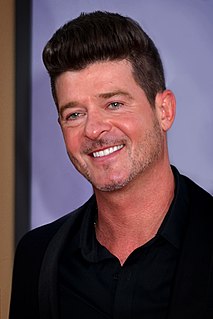A Quote by Margaret Atwood
As an artist your first loyalty is to your art. Unless this is the case, you're going to be a second-rate artist. I don't mean there's never any overlap. You learn things in one area and bring them into another area. But giving a speech against racism is not the same as writing a novel. The object is very clear in the fight against racism; you have reasons why you're opposed to it. But when you're writing a novel, you don't want the reader to come out of it voting yes or no to some question. Life is more complicated than that. Reality simply consists of different points of view.
Quote Topics
Against
Against Racism
Another
Any
Area
Art
Artist
Bring
Case
Clear
Come
Complicated
Consists
Different
Different Points Of View
Fight
First
Giving
Going
Learn
Life
Life Is
Loyalty
Mean
More
Never
Novel
Object
Opposed
Out
Overlap
Points
Question
Racism
Rate
Reader
Reality
Reasons
Same
Second
Second-Rate
Simply
Some
Speech
Than
Them
Things
Unless
Very
View
Voting
Want
Why
Writing
Yes
Yes Or No
Your
Related Quotes
It's more like I write multiple first drafts, handwritten. So with my first novel, I wrote whole drafts from different points of view. There are different versions of that novel in a drawer on loose-leaf sheets. I won't even look at the first draft while I'm writing the second, and I won't look at the second before writing the third.
The writing of a novel is taking life as it already exists, not to report it but to make an object, toward the end that the finished work might contain this life inside it and offer it to the reader. The essence will not be, of course, the same thing as the raw material; it is not even of the same family of things. The novel is something that never was before and will not be again.
After my first novel, my mother said to me, 'Why don't you make your writing more funny? You're so funny in person.' Because my first novel was rather dark. And I don't know, but something about what she said was true. 'Yes, why don't I?' Maybe I was afraid to be funny in the writing. But since then, seven books later, almost everything I've done has a comedic edge to it.
There's no really other way to learn writing than by writing. So accelerate that as much as you can. The more you write, the better you'll get. What also helps, though, is walking away from broken stuff. Not everything's going to work. Killing two years of your life trying to resuscitate a dying novel, I don't know. Why not just write a different one? You'll have more ideas. You can't help having ideas.
I think comedy is so much easier to do on the page than it is in real life. When I'm writing, comedy is an easy way to win over the reader. You're automatically more disposed to keep reading, thinking maybe, "I'll get another laugh or two." I think it's a survival instinct in me. I mean, you don't want to lose these guys within five or ten pages. You want them to keep going. I think to some extent it's a desperate measure that I throw out there, because a novel isn't a complete waste of time if it made you laugh.
There are things about the South - the politics, the classism, the racism - that I hate, and I want to be here to fight those things. I don't want to be in California or Michigan just complaining about them. I'm here trying to make a difference in the way I can, writing about it. And I want younger people, especially kids from my community, to see that being successful doesn't have to mean leaving a place like this. You don't have to trade in your family or your sense of belonging for that.
When I wrote for Jordan Knight, I was 17 or 18, they were pretty much the only songs I was writing. By the time people like Christina or Usher came around, I was able to know that I was writing for different points of view and people that might not want to say certain things. So you have to be considerate of whichever artist you're writing for.
You have to fight against all the things that will keep you out of writing, because life doesn't go with writing. You will always have something more important to do: you will have to take your children to school, you will have to cook something, you have to meet friends. But you have to fight if you want to write.



































